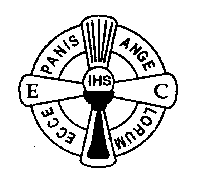Excerpts
From the Manual of the
Eucharistic Crusade of the Apostleship of Prayer
Published
in 1962 by the Central Office of the Eucharistic Crusade, Rome

Educating the Youth to Live the Mass
(slightly edited by Fr. Boulet)
THE SACRIFICE OF THE MASS AND HOLY COMMUNION
The Sacrifice of the Eucharist is the center of all spiritual formation and also its chief means. For the end of religious education is to prepare, dispose and help children to share perfectly as offerers and victims in the Eucharistic Sacrifice. At the same time the Eucharist itself is the chief source of grace by which children are more and more fitted to achieve this end.
SOME CONSIDERATIONS.
1. The Norms, proposed here, must not be looked upon merely as an extension of the ordinary catechism class. Although, in fact, quite often the Crusade does make up what has perhaps been omitted or neglected in this instruction, nevertheless the Crusade is intended principally to help the children to grasp this doctrine intimately, to experience it, and to shape their lives according to it. To achieve this, a fuller instruction and deeper knowledge is clearly necessary. But the Crusade program must never assume the form of a catechism class. Otherwise the children will consider it just so much more school work and may therefore be opposed to it. (…)
2. "Living the Mass" must not be taken as a special element, separate from Christian education; something which is added to it as a kind of appendix. Rather all that deals with religious and moral formation is to be referred to the Holy Eucharist. So, for example, the various virtues that the children ought to exercise are explained to them as dispositions that fit them to share in the Eucharistic Sacrifice as offerers and victims, and to live their lives in this eucharistic spirit.
4. In " living the Mass, " the first and chief thing is that the children experience inwardly and savour the fundamental truths contained in this great mystery, e.g. the intimate friendship and familiarity with Christ, the love of Our Saviour, absolute confidence in Him, the joy of honouring God the Father in a way worthy of Him through Jesus Christ His Son, Our Lord, profound reverence for His Divine Majesty in the act of sacrifice. And just as prayer must be founded upon and depend upon a lively faith, so a fervent eucharistic spirituality rests in the first place on the same deep faith and the right disposition of mind. Therefore all ideas proposed here tend to this, namely, that the children gain a deep perception and experience of these great truths so as not only to understand them but especially to live with the Eucharistic Jesus in a state of true love and intimate devotion.
Home | Contact
| Mass Centres | Schools
| Pilgrimages | Retreats
|
Precious Blood Residence
District Superior's
Ltrs | Superor General's
Ltrs | Various
Newsletter | Eucharistic
Crusade | Rosary Clarion | For
the Clergy | Coast to Coast |
Saints | Links